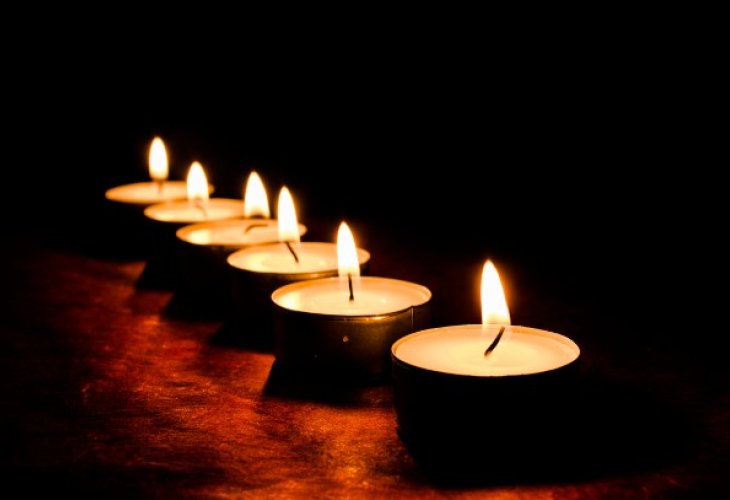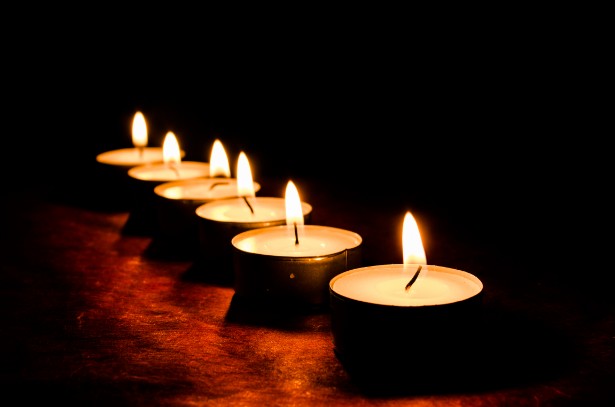Jewish Law
Why We Light a Memorial Candle for the Departed: Meaning and Source of the Custom
The spiritual meaning behind the Jewish custom of lighting a candle for the deceased — how its light brings comfort, elevation, and peace to the soul

Shalom, Rabbi. I would like to know the source for the custom of lighting a memorial candle for the elevation of a departed soul, especially during the seven days of mourning (shiva). How does it help? I’ve heard some people say it has no real meaning.
* * *
This custom has a deep spiritual and traditional foundation and should therefore not be dismissed. It is customary to light an oil lamp or candle in the home of the deceased for all seven days of mourning, based on the verse: “The soul of man is the lamp of God” (Mishlei 20:27).
Similarly, our Sages teach that Rabbi Yehuda HaNasi (Rebbi) said before his passing (Ketubot 103a): “Let a lamp remain lit in its place.”
Rabbi Yaavetz explains that this is likely the source for the custom to light a candle in memory of the deceased.
Symbolism of the Candle
In Yabia Omer (vol. 4, 34), Rabbi Ovadia Yosef cites the Sefer Ma’amar Esther, which explains the symbolism:
The flame represents the soul — “The lamp of God is the human soul.”
The oil represents the divine sustenance that nourishes it.
The water, by contrast, symbolizes the physical element that decays, as it says, “We must all surely die, and be as water spilled on the ground” (II Samuel 14:14).
In Torah Lishmah (520), Rabbi Yosef Chaim of Baghdad (the Ben Ish Chai) elaborates: “Know that the soul derives pleasure from the light of the candles. It walks amidst the brightness, joy, and serenity of the light, expanding and elevating through that radiance — for the soul itself is a spark of divine light, hewn from the eternal source of intellect and holiness. Therefore, it is naturally drawn to light, even physical light, for it resembles its own essence. This is why Shlomo Hamelech said, ‘The lamp of God is the soul of man.’ Hence, the soul takes delight in the light of the candle.”

The Soul’s Enjoyment of Light
Do not be surprised by this, continues Rabbi Yosef Chaim: Even while alive, the soul enjoys fragrance, as our Sages said: “What does the soul enjoy while still in the body? Scent.” Because fragrance is a spiritual sense, it gives joy to the spiritual soul. If that is so, how much more does the light of a flame, which is even more subtle and spiritual, bring pleasure to the soul after death.
Therefore, during the seven days of mourning, when the soul of the departed still lingers in the home, according to the Arizal’s explanation for the seven days of mourning, we light a candle there to provide comfort and delight to the soul.
Where Should the Candle Be Lit?
In Imrei Emet (Likutei Mitzvot, p. 55) it is written: “The custom of lighting a candle at the place where the person passed away — even if the mourners are sitting elsewhere — is proper, because the soul ascends and descends to that place.”
Rabbi Ovadia Yosef adds (Yabia Omer, ibid.): “Our custom is to light a Ner Neshamah (memorial candle) in the mourner’s home, even if the person passed away elsewhere (for example, in a hospital).
Just as prayers said in the mourner’s home bring comfort to the soul, even though the deceased did not die there, so too the lighting of a candle there provides pleasure and elevation to the soul.”
This is similar to the candles lit for righteous people and saints, as an act of honor and spiritual connection.
A Differing View and Its Rejection
Some, such as the Lashon Chachamim (Laws of Mourning 28), write that one should only light candles in the house where the person passed away, and only for seven days, arguing that otherwise the soul has “no rest, being forced to travel from candle to candle.”
However, Rabbi Ovadia Yosef firmly rejects such claims, writing that one should not rely on mystical ideas that have no foundation in the Talmud or authentic Kabbalistic sources. He quotes the Ben Ish Chai (Rav Pe’alim vol. 4, Orach Chaim 35), who wrote regarding a similar claim: “Such statements cannot be accepted based on mere reasoning or mystical speculation unless they are explicitly rooted in the Talmud, the Zohar, or the teachings of the Arizal, who received from Eliyahu HaNavi.”

